Your basket is currently empty!
Great Fire of Rome (64 CE)
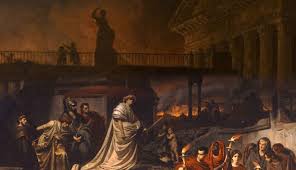
On July 18th, 64 CE, the Great Fire of Rome erupted, beginning in the merchant shops around the Circus Maximus. The fire quickly spread, fueled by strong winds and the narrow, winding streets of the city. For six days and seven nights, the flames devastated the ancient city, consuming an estimated two-thirds of Rome. Emperor Nero, who was reportedly at his villa in Antium during the initial outbreak, rushed back to organize relief efforts. He opened his palaces to provide shelter and arranged for food supplies for the displaced citizens. Despite his efforts, rumors circulated that Nero himself had started the fire to clear land for his extravagant Domus Aurea palace. The emperor subsequently initiated the persecution of Christians, scapegoating them for the catastrophe to deflect suspicion from himself. This event remains one of the most significant and debated disasters in Roman history.
Death of Caravaggio (1610)
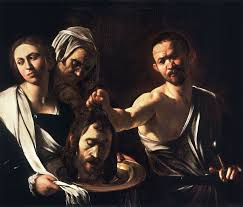
On July 18th, 1610, Michelangelo Merisi da Caravaggio, the revolutionary Italian Baroque painter, died under mysterious circumstances. He had been fleeing Rome after killing a man in a brawl and was on his way to receive a papal pardon. Caravaggio’s last known location was Porto Ercole, a small Tuscan port town. His death, at the age of 38, is generally attributed to a fever, possibly malaria or typhoid. Despite his short and tumultuous life, Caravaggio left an indelible mark on art history. His dramatic use of chiaroscuro—the interplay of light and shadow—and his raw, realistic portrayal of human figures revolutionized painting. His influence can be seen in the works of countless artists who followed him. The exact circumstances of his final days continue to be a subject of historical and artistic speculation.
Jane Austen’s Death (1817)
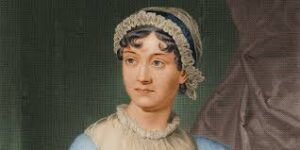
On July 18th, 1817, one of England’s most celebrated novelists, Jane Austen, passed away at the age of 41. She died in Winchester, England, likely from Addison’s disease, a condition that was poorly understood at the time. Austen had been suffering from an unknown illness for some time, experiencing weakness and pain. Despite her declining health, she continued to write, though her final novel, Sanditon, remained unfinished. Her literary legacy includes beloved works such as Pride and Prejudice, Sense and Sensibility, and Emma. Austen’s novels are renowned for their keen social commentary, sharp wit, and insightful portrayals of women’s lives in the Georgian era. Though her works gained popularity during her lifetime, her true literary stature was recognized posthumously. Her unique blend of romance, satire, and social observation continues to captivate readers worldwide.
First Vatican Council Decrees Papal Infallibility (1870)
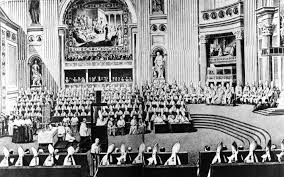
On July 18th, 1870, the First Vatican Council, also known as Vatican I, proclaimed the dogma of papal infallibility. This council was convened by Pope Pius IX and lasted from 1869 to 1870. Its primary aim was to define Catholic doctrine in light of modern challenges, including rationalism and liberalism. The dogma of papal infallibility, defined in the constitution Pastor Aeternus, states that the Pope is infallible when, in his role as pastor and teacher of all Christians, he defines a doctrine of faith or morals. This decision caused significant debate and division within the Catholic Church and beyond. Despite the controversies, the dogma became a fundamental part of Catholic teaching. The council was interrupted due to the outbreak of the Franco-Prussian War and the Italian unification, which led to the capture of Rome.
Nelson Mandela’s Birthday (1918)
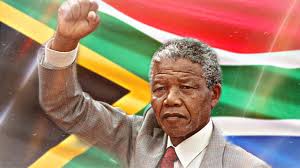
July 18th marks the birthday of Nelson Rolihlahla Mandela, born in 1918 in Mvezo, Eastern Cape, South Africa. Mandela became an iconic global figure, celebrated for his unwavering dedication to fighting apartheid and promoting human rights. He spent 27 years in prison for his activism against the racist regime, becoming a symbol of resistance and hope. Upon his release in 1990, he played a crucial role in negotiating the end of apartheid and transitioning South Africa to a multiracial democracy. In 1993, he was awarded the Nobel Peace Prize for his work in ending the oppressive system. Mandela went on to become South Africa’s first democratically elected president in 1994, serving one term. His life and legacy continue to inspire millions worldwide to pursue justice, equality, and reconciliation.
Start of the Spanish Civil War (1936)
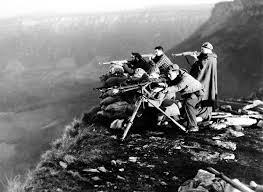
On July 18th, 1936, the Spanish Civil War erupted, when a section of the army, led by General Francisco Franco, launched a rebellion against the Second Spanish Republic. This military coup, which began in Spanish Morocco, quickly spread to mainland Spain. The rebels, known as Nationalists, were supported by the fascist regimes of Italy and Nazi Germany. The Republican government, on the other hand, received backing from the Soviet Union and international brigades made up of anti-fascist volunteers. The war was exceptionally brutal, marked by widespread violence and atrocities on both sides. It became a testing ground for new military tactics and weaponry, foreshadowing World War II. The conflict lasted for nearly three years, ending with the Nationalist victory in 1939 and the establishment of Franco’s long-lasting dictatorship.
